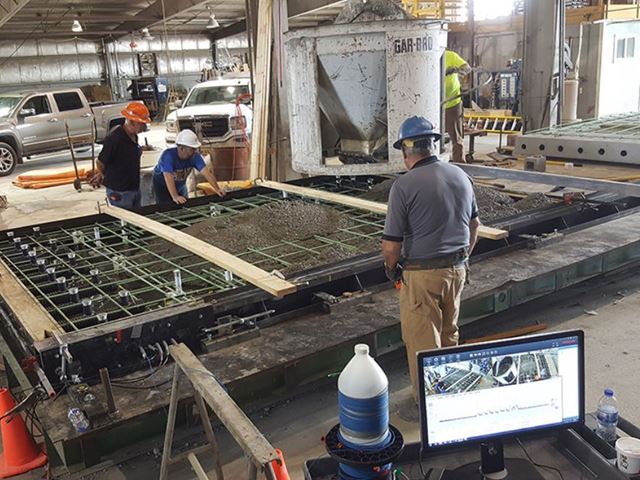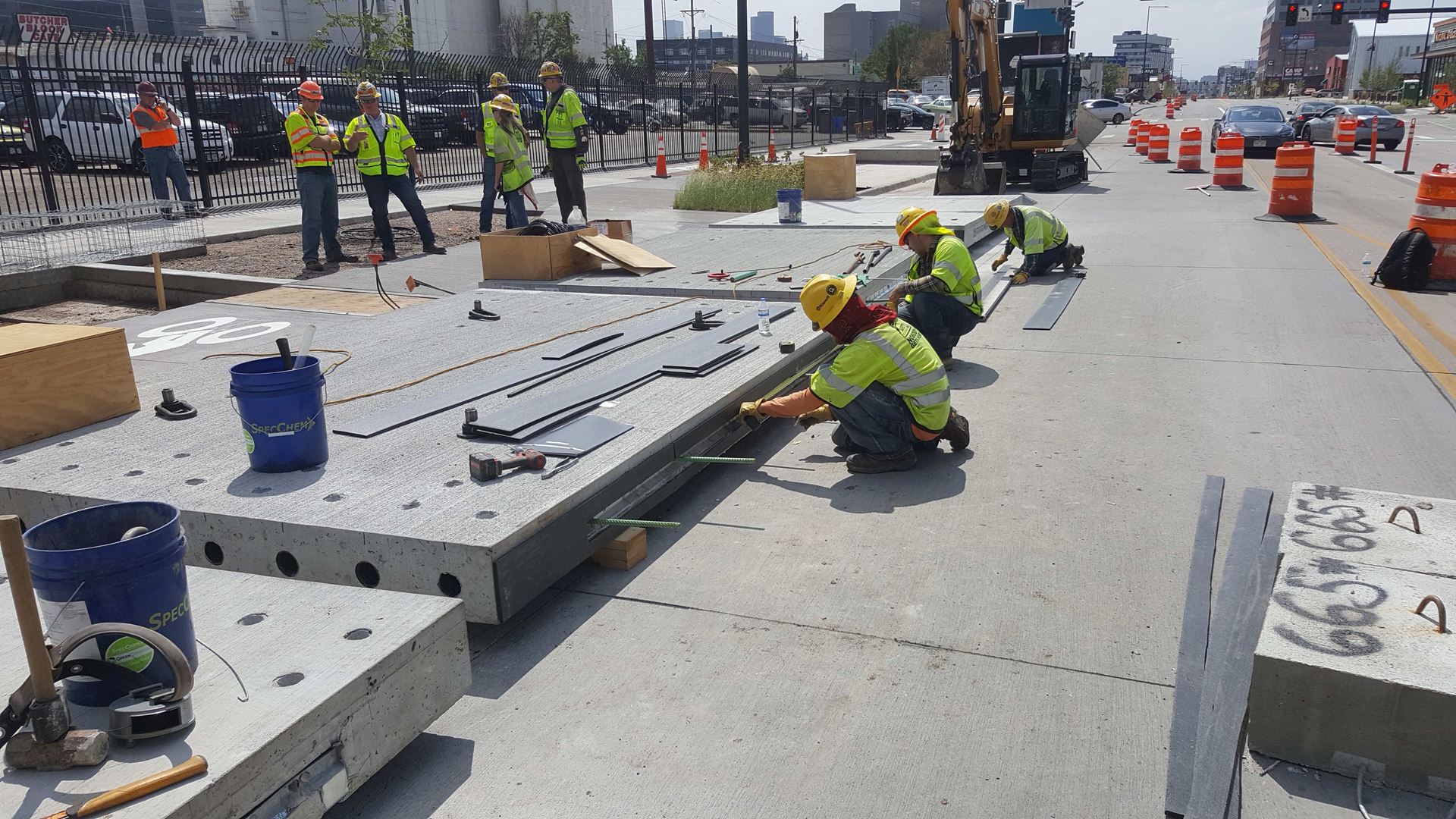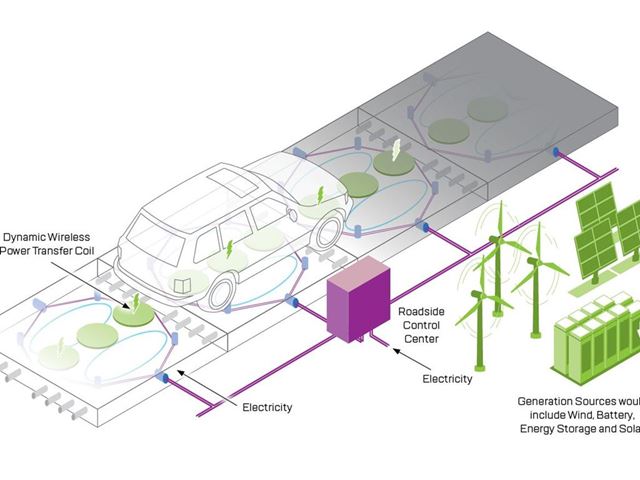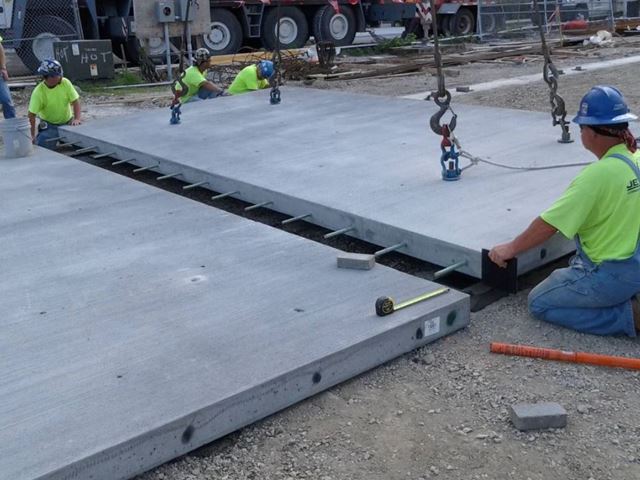
- Latest: Welcome to Auto Futures - Mobility News, Features, Exclusives and More...
- Latest: Subaru Europe Unveils the Brand's First All-Electric Compact SUV
- Latest: Lucid, Nuro & Uber Partner on Next-Generation Autonomous Robotaxi Service
- Latest: GM & Redwood Materials to Repurpose EV Batteries for Energy Storage
- Latest: Stellantis Discontinues Hydrogen Fuel Cell Technology Development Program
- Latest: Paving the way for an Electrified Future - L-Charge CEO
Paving the Way for Wireless Charging, Connected Roads & Services - Integrated Roadways CEO Tim Sylvester
Lynn Walford
- Apr 04 2023

Roads need repair, cities need money, electric vehicles need charging, autonomous vehicles require edge computing and everyone needs better road data - Integrated Roadways fulfils all these needs and more. The company offers prefabricated road slabs filled with leasable tech inside, called Smart Pavement.
Tim Sylvester, founder and CEO at Integrated Roadways, explains how it all works.
Sylvester has the right mix of road construction and technology knowledge to put it all together.
"I have about twenty years of experience in construction. I am a first-generation internet user and an early adopter of so many technologies that are commonplace now. I realized a long time ago that connected electric and autonomous vehicles would require managed services from infrastructure, in the same way, computers benefit from the Internet and smartphones require cell networks. I also realized that there did not seem to be anybody else tackling this opportunity," says Sylvester.
Integrated Roadways Smart Pavement System is not just about a single technology, he says. It is about the need for multiple managed services integrated into roadways.
Connected, electric and autonomous vehicles need distinct technology different from current vehicle technology. The Smart Pavement block includes wireless charging and sensor arrays that collect data about the environment, road use and more. Smart Pavement also embeds Wi-Fi, 4G, 5G, Bluetooth, edge computing and assisted autonomy, he reports.
"We are making adoption easier by integrating the technology and making it into a product that is easily put into the roadways."

Integrated Building Blocks for Roadways
The main thing Integrated Roadways is doing is fixing the roadways, Sylvester says.
"We put the roads first using the most economical long-lived, lowest-total-cost-of-ownership durable products - prefabricated road systems from the factory and then implement them using interchanges that can be fabricated anywhere. It is like a Lego kit that all works together," he explains.
The infrastructure Smart Pavement blocks are made in convenient factories with technology inside the blocks in a way that could never be done when roads are built in one place.
The Smart Pavement slabs are about one lane wide. A continuous pavement is constructed through segments of blocks. The precast concrete blocks do not expand like asphalt and absorb less heat.
Blocks are installed using existing equipment available to any contractor. Roads are built faster with less equipment. Blocks can be removed and reused when utilities need to reach infrastructure under the road, he says.

What Can Smart Pavement Do?
The sensors in the road are valuable for detecting emergencies and traffic planning.
For example, smart roadways can be installed on a dangerous curve. When a vehicle is detected leaving the roadway, the system contacts emergency services, he says.
“The sensors collect data through the roadway that is captured in a dashboard. City, engineers and developers can use this data in the dashboard to plan for road improvements,” he notes.
The Smart Pavement assists autonomy through the sensors, communication and edge computing. Sensors in the road detect the exact locations of the cars. Communication systems in the pavement enable cars to talk to cars and anything else connected to the network. Servers on the side of the road store maps, manage communication and provide all the digital services needed, Sylvester says.

Who Pays for the Smart Connected Roadways?
Sylvester proposes that by turning the road into a managed services platform for advanced digital capabilities, consumers of the services pay reasonable market prices for services.
Integrated Roadways acts as a neutral host for cell services. The company can develop deals with cell carriers for hosting cell service in the roads.
"If we treat public infrastructure like a commercial concern and make the consumers and beneficiaries of that infrastructure pay for the cost of it, public agencies will have a lot more money to spend on other things. It is like a new version of real estate development, except instead of leasing square footage, we are leasing access to all the digital systems," explains Sylvester.
He says funding can come from public and private partnerships with cities and financing firms.
Integrated Roadways is implementing wireless charging, data collection, wireless communication and edge networking in Lenexa, Kansas to showcase its technology. Public agencies, commercial enterprises and the general public can access the services provided.
"We are focused on validating the model. We are also working with public agencies to get the next round of projects in place," concludes Sylvester.
Popular Categories
